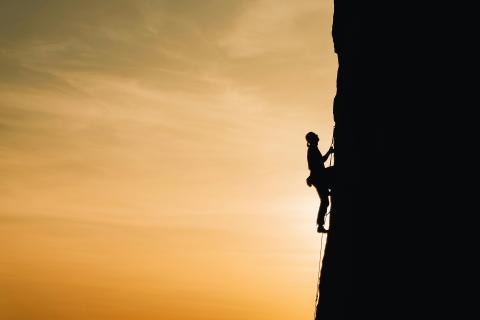At 15 years, it’s fun to reflect on the Land Portal’s beginnings. Someone recently asked me if there was a time when I thought the Land Portal wouldn’t make it, and I could instantly recall those moments. There were times when I flew from Rome to Berlin or Rotterdam, including with my infant son to meet our first potential donor, only to hear that we weren’t successful. Or before, when the Land Portal was a small project under the joint oversight of the International Land Coalition and landtenure.info consortium. Despite the great initial support they provided in bringing the Land Portal to life, none of us was completely sure if it could fulfill its potential without becoming an independent, neutral organization with its own funding. There were more recent times too. During the COVID-19 pandemic, we fought to keep our operations going as uncertainty changed everything around us.

The Land Portal is still here because from the beginning, even as a scrappy little project in 2009, its value was straightforward. We wanted to make information about land less fragmented, freely available and easily accessible.
At the time, the open knowledge movement was just burgeoning, and many in the land sector didn’t yet have the language to articulate why open data mattered in the land or development world. It almost felt like we were beating the drums too early.
Yet when I started joining the open knowledge community in 2010, the energy and momentum were palpable. Open data principles had the potential to positively impact the world, and the land sector. I remember going to the inaugural Open Knowledge Festival in Helsinki in 2012. Neil Sorensen, who was to join the Land Portal in 2014, was also there, and we both remember this gathering of the open knowledge community as a seminal experience. I absorbed as much as I could and, full of ideas, came back to the Land Portal.
The cross insemination that our small team started doing manifested in foundational ways. The website was built with open infrastructure, with linked metadata. We chose to work in Drupal, an open source content management system. We built LandVoc, a structured vocabulary set about land, to tag every piece of content we aggregated and make them more discoverable. We embedded data and open data topics into our partnerships. We slowly grew our userbase by being a transparent one-stop destination for land information that was open to all (nowadays the idea is captured by the term “digital public good”).
Times have changed, and so have our approaches. Going beyond aggregation, the Land Portal now conducts research around the world. We write, summarize, explain, organize and publish content on land and land-adjacent issues, such as climate, food, and water. All our initial work on aggregation enabled us to see the major gaps in land data and information, and we’ve turned that work into the State of Land Information research project, which monitors land data at the country level.
None of this changes our mission: To improve access to land-related data and information. Access to information is really about power. And it is crucial for achieving good land governance and securing land rights for landless and vulnerable people.
In many ways, the Land Portal is a data organization operating in the land sector, rather than a land organization focusing on data. It’s always been a bit of an identity crisis. But we’ve never thought it was so important to pick one or the other, because our true role is as a convener of ideas and people across sectors to promote the value of open knowledge and collaboration. The Land Portal’s strength lies in the diversity of its community.
I’ll leave you with something that I’ve held on to for more than 10 years. When that meeting with the first potential big donor got canceled in Berlin, I thought the hope of making the Land Portal an independent organization was dead on arrival. But Leon Verstappen, who had been with the Land Portal since day one, encouraged me to write to Iris Krebber at what was then called the Department for International Development (DFID) in the United Kingdom. She was leading the land portfolio there, and I’ll never forget her response.
“We sponsor good ideas.”
I’ve tried hard to channel this spirit at the Land Portal. I am so proud of our team and our ability to listen. We listen for good ideas, underrepresented ideas, new ideas. We listen, and we are in the privileged position to support and implement a lot of them. Thank you for trusting us, thank you for being here.

Photo by Tairon Fernandez: https://www.pexels.com/photo/person-holding-lighted-sparkler-450301/



